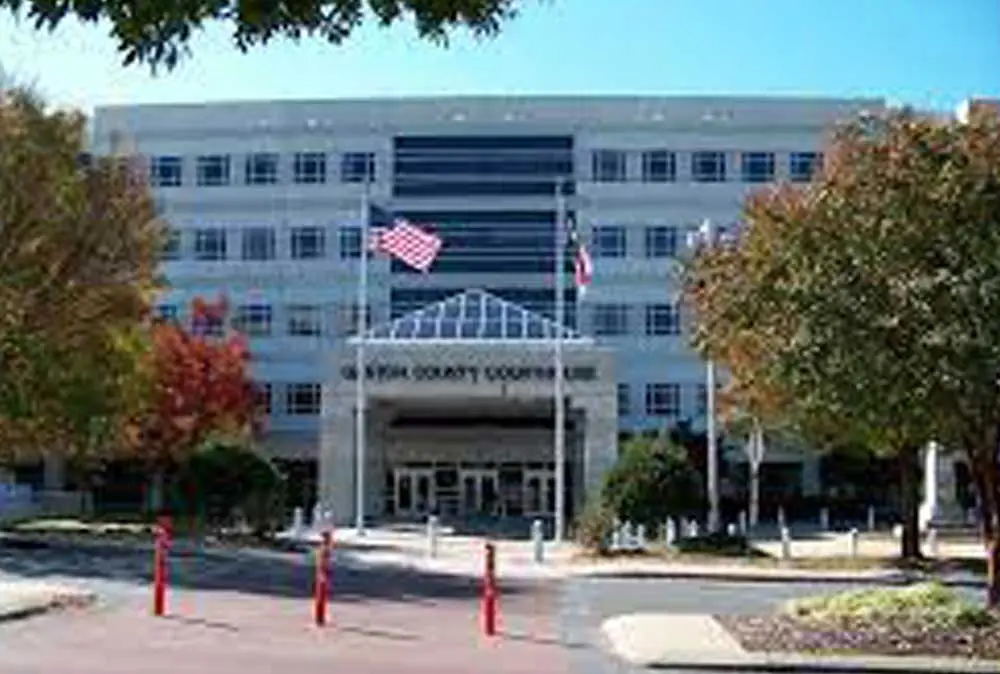- Workers’ compensation claim is denied or disputed.
- The settlement offered doesn’t cover all of your past and future medical bills, lost wages and other expenses.
- The benefits are delayed or reduced for no reason.
- Your injuries are limiting or keeping you from returning to work.
- Your employer retaliates against you for filing a workers’ compensation claim.
- You were injured by a third party or your employer’s gross misconduct (i.e. unsafe working conditions).
- You have a pre-existing condition.
- You are looking to apply for Social Security disability benefits (or are currently receiving them).
- You have a pre-existing condition.
- You have an upcoming workers’ compensation hearing.
Experienced Personal Injury Lawyers
With The Know How To Litigate Complex Personal Injury and Workers Comp Cases
When Facing the Following Issues You Should Contact an Attorney
CLAIMS
How To File A Workers Compensation Claim
STEP 1
Seek Medical Attention
Your personal health and well-being should be of utmost importance. Once you have verbally told your boss or employer about your injury or accident, they should give you instructions on visiting an approved doctor. You may also see your own doctor for a second opinion but know that this visit may not be covered by workers’ compensation. If your workplace has a healthcare provider on-site, see that individual. If the injury is an emergency, go to the nearest hospital or emergency care facility immediately and worry about telling your employer later. When at the doctor’s office,
- Explain your work-related injury or illness to the physician.
- Explain how it happened or when you first noticed the symptoms.
- Make sure that the doctor has the name of your employer and knows that you will be filing a workers’ compensation claim.
It’s Important To:
- Follow all of the doctor’s orders regarding treatment for your injury or illness, and attend any follow-up appointments that may be recommended.
- Failing to obey medical instructions or attend follow-up appointments can jeopardize your workers’ compensation claim and give the insurance company a reason to deny your benefits.
STEP 2
Notify Your Employer
Always follow up with a written notice to your immediate supervisor or to the human resources (HR) department, after verbally telling your employer about your injury prior to seeking medical treatment. North Carolina law gives you 30 days from the date of your accident to report any injury to your employer in writing. The sooner you can provide written notice, the better because any delays will look suspicious to the insurance company.
Even though you or a coworker likely already verbally told your employer about your injury prior to seeking medical treatment, it’s important that you follow up with a written notice to your immediate supervisor or to the human resources (HR) department. North Carolina law says that you have 30 days from the date of your accident to report any injury to your employer in writing. The sooner you can provide written notice, the better — as any delays will look suspicious to the insurance company.
If your injury prevents you from giving written notice, ask a friend or a coworker to tell your employer what happened and that you will give written notice as soon as you are able to do so. Also, it’s a good idea to tell your coworkers what happened in case your supervisor later tries to deny receiving notice of your claim.
STEP 3
Notify Your Employer
You have 2 years from the date of your injury to file a Form 18. The Form 18 is the Notice of Accident to Employer and Claim of Employee, Representative or Dependent for NC Workers’ Compensation Benefits — is the document that must be filed with the North Carolina Industrial Commission (NCIC) within 2 years from the date of your injury.
We encourage injured workers to submit this form within 30 days, you technically have 2 years to do so before your claim will be disqualified from receiving workers’ compensation benefits. The longer you wait to submit this form, the greater the risk that the insurance company will dispute or deny your claim.
You can contact an attorney from our firm, a friend, or the North Carolina Industrial Commission for help filling out this form. The phone number for the NCIC is (800) 688-8349.
The insurance company should make a decision and provide written notice of whether it is accepting or denying your claim within 14 days of receiving your Form 18. (In some cases, the insurer will file a conditional acceptance if it needs more time to investigate the claim.) If the insurance company accepts your claim and your costs are fully covered, you should receive a Form 60 — Employer’s Admission of Employee’s Right to Compensation — or Form 63 — Notice To Employee of Payment without Prejudice.
What To Do
If Your Claim Was Denied
If the insurance company denies your claim, you may still have rights under the law to appeal the denial.
You will receive a copy of Form 61 — Denial of NC Workers’ Compensation Claims — from your employer or their insurance company. This document should explain the reasons for the denial. An attorney can determine if there are grounds for filing an appeal of the denial.
If the case has merit, your attorney will file a request for hearing with the Industrial Commission by submitting Form 33
Your Attorney will file a Request for Hearing with the North Carolina Industrial Commission. Before the hearing, your attorney will gather evidence and respond to questions from the insurance company’s lawyer.
It’s important to understand that a workers’ compensation hearing is not the same thing as filing a formal lawsuit against your company and its workers’ compensation carrier.
During the hearing, your attorney will present your case in front of an administrative law judge with the Industrial Commission, arguing that your workers’ compensation benefits should be granted and the denial be reversed.
Personal Injury
Personal Injury Questions
Fatal Car Crash And Opioids
Opioids are a class of drugs that are commonly used to manage pain, but they also have a high potential…
Drunk Driving Accidents And Teens
Drunk driving accidents involving teenagers are a serious problem in North Carolina, both in terms of the potential for tragic…
2024 Legal Elite Business North Carolina
Greg Plumides Managing Partner Greg Plumides Michael Romano Managing Partner Michael Romano Richard B. Johnson Managing Partner Richard B. Johnson…
Choosing A Doctor for Workers’ Comp Case’s
The good news about workers’ compensation is that any accidental injury that happens at work is eligible for coverage. The…
Slip and Fall Accidents
Personal injury lawyers can help with more than just car accident cases. You have the right to seek compensation for…
Wrongful Death Lawsuits in NC
Human life is priceless, so the purpose of wrongful death lawsuits is not to place a dollar value on the…
Tractor Trailer Accidents in North Carolina
Personal injury Truck driving is one of the most under-appreciated professions. All those big trucks you see on the highway…
North Carolina Medical Malpractice Basics
Healthcare is expensive, but your health is priceless. If you have been struggling to pay medical debts for years, you…
Workers’ Compensation Laws of NC
Anyone who suffers an accidental injury at work has the right to file a workers’ compensation claim. Filing a workers’…
Personal Injury Resources
- North Carolina Workers’ Compensation Laws for Subcontractors & Independent Contractors
- North Carolina Retirement Link
- Cobra Insurance by state
Workers Compensation forms for Claimants
Employer Forms
Nursing & Medical Rehabilitation Forms
Specialty Forms
North Carolina
Counties We Serve
Mecklenburg
832 E. Fourth St.
Charlotte, NC 28202 (704) 686-0400
Gaston
325 M.L.K. Jr. Way
Gastonia, NC 28052 (704) 852-3100
Union
400 N. Main Str.
Monroe, NC 28112 (704) 698-3100
Iredell
226 Stockton St,
Statesville, NC 28677 (704) 832-6600
Cabarrus
77 Union St. South,
Concord, NC 28025 (704) 262-5500
Lincoln
120 Justice Drive,
Lincolnton, NC 28093 (704) 742-7800
General Rules To Follow When Going To Any Courthouse
- In order to prevent firearms, knives, and other weapons from being brought into the building, anyone entering a courthouse must walk through a metal detector.
- You cannot have any metals on your person when walking through the metal detector or an alarm will sound. If metal is detected, you will be asked to remove any metallic items and walk through again.
- Removing all metal objects from your person, including change, belts and steel-toed shoes, will speed up this process.
- You may also be scanned with a wand by a deputy to pinpoint the location of metals.
- You must place all items you are carrying in a basket to be viewed through a live-scan.
- The metal detectors and live-scan will not pose a health risk to you; this includes pregnant or nursing mothers. If you have a special need or disability, or you wear an implanted device, please inform the deputies.
- Laptop computers, iPads/tablets, e-readers and cell phones are allowed into the courthouse. You will be asked to turn on laptops and other electronic devices before being allowed to enter the building.
The following items are prohibited by courthouse security:
- Glass Container
- Guns (ALL)
- Handcuff Key
- Knitting/Sewing Items
- Knives (ALL)
- Kubatons
- Large Safety Pin
- Laser Light
- Leatherman
- Letter Opener
- Meat Thermometer
- Metal Pick
- Nails/Screws
- Paint
- Paint Scraper
- Painters Hook
- Pepper Spray
- Putty Knife
- Razor Blade
- Scissors
- Tasers/Stun Guns
- Tools (ALL)
- Wire Hangers
The following items are only allowed with prior written approval.
- Photography
- Filming
- Audio Recording

Find My Court Date
Search the NC courthouse calendars to see when you need to appear in court.

Prepare for Jury Service
Find out what to expect when you arrive, how to conduct yourself, and what you need to do when you serve as a juror.
Michael and his team are the best in the business. Professional, respectful, efficient, comforting and experts at what they do. On top of all that, they will invest in you with genuine care and support which gives peace in mind that these are people you can trust.
- Eric W.
Straight to the point. Honest people. It's hard to find these days. Can't thank them enough.
- Paul S.
My daughter hired Maria for a custody suit. Maria is like family! She is open, honest and treats her clients with respect. Her communication with my daughter during the process was impeccable! She treats her clients AND their families fairly and goes beyond expectations. I know my daughter was in…
- Audrey B.
Copyright ©2026 Plumides, Romano & Johnson PC • All rights reserved
This website is intended to provide general information only. Nothing contained in this website is intended to provide legal advice. By using this website you acknowledge and agree that you have not formed an attorney-client relationship with Plumides, Romano & Johnson PC and will not rely on any information contained on this website.


















